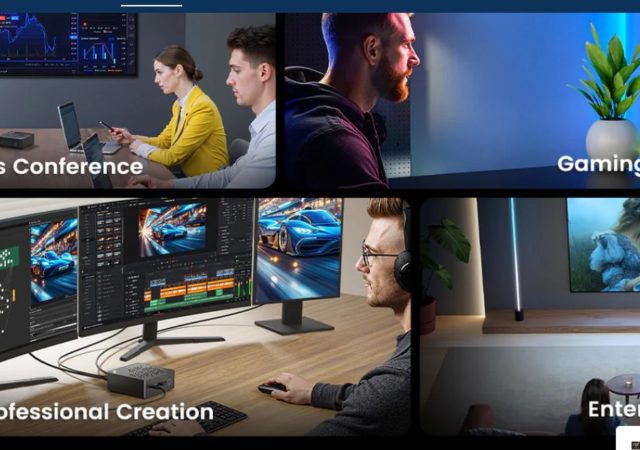Personalisation
vs Privacy: How APAC brands can do better
vs Privacy: How APAC brands can do better
·
4 in 5 customers in APAC will not choose to
purchase from a brand if their data had been used without knowledge
4 in 5 customers in APAC will not choose to
purchase from a brand if their data had been used without knowledge
·
1 in 2 (56%) customers in APAC expect brands to
respond within 3 hours
1 in 2 (56%) customers in APAC expect brands to
respond within 3 hours
 SINGAPORE
SINGAPORE— 14 March 2017 — SAP Hybris today
released the results of the “SAP Hybris Consumer Insight” survey, which
revealed that almost 4 in 5 (78%) of consumers in the Asia Pacific (APAC)
region will not choose to purchase from a brand again if their data had been
used without knowledge. Despite this, more than 83% of respondents are willing
to share at least some form of personal information with brands, with the
exception of Japan at a modest 52%.
More than 7,000 consumers across APAC were surveyed to uncover consumer
preferences when engaging with brands, including what makes or breaks a
customer experience and the continued use of a brand.
preferences when engaging with brands, including what makes or breaks a
customer experience and the continued use of a brand.
“Accounting for half of the world’s total 3.6 billion Internet users, APAC
is fast becoming the center of digital innovation for the world. [1] APAC is also the fastest growing region, accounting
for 70% of total growth in global internet users in 2016. This rapid growth of
the internet, mobile phones and other digital technologies has created
opportunities and challenges for millions of consumers and brands in the region,”
said Nicholas Kontopoulos, Global Vice President of Fast Growth Markets
Marketing at SAP Hybris.
is fast becoming the center of digital innovation for the world. [1] APAC is also the fastest growing region, accounting
for 70% of total growth in global internet users in 2016. This rapid growth of
the internet, mobile phones and other digital technologies has created
opportunities and challenges for millions of consumers and brands in the region,”
said Nicholas Kontopoulos, Global Vice President of Fast Growth Markets
Marketing at SAP Hybris.
The SAP Hybris survey found that APAC consumers are most comfortable
with sharing the email addresses (58%), shopping history and preferences (49%),
and mobile numbers (36%) with brands. While these allow brands to create
personalised customer experience for the consumers, usage of consumer data has
to be approached with extra caution. 67% of APAC consumers expect brands to
protect their interest when using their personal data, followed by transparency
in data usage (52%), and ensuring customer privacy in the event of criminal
investigations at (47%).
with sharing the email addresses (58%), shopping history and preferences (49%),
and mobile numbers (36%) with brands. While these allow brands to create
personalised customer experience for the consumers, usage of consumer data has
to be approached with extra caution. 67% of APAC consumers expect brands to
protect their interest when using their personal data, followed by transparency
in data usage (52%), and ensuring customer privacy in the event of criminal
investigations at (47%).
In this digital age, APAC consumers also have higher expectations of
brands. Over 80% of respondents in APAC indicated that they expect brands to
respond within 24 hours, setting that as the baseline expectations on the speed
of response. The survey further revealed that 1 in 2 (56%) of APAC respondents
expect brands to respond within 3 hours – a much faster response time than what
brands typically deliver. Thailand and China are the most demanding markets in
the region, with almost 1 in 2 (48%) expecting brands to respond to their
queries within the hour. 56% of consumers from these two countries also
indicated that there will not use of brand again if it makes a mistake twice.
brands. Over 80% of respondents in APAC indicated that they expect brands to
respond within 24 hours, setting that as the baseline expectations on the speed
of response. The survey further revealed that 1 in 2 (56%) of APAC respondents
expect brands to respond within 3 hours – a much faster response time than what
brands typically deliver. Thailand and China are the most demanding markets in
the region, with almost 1 in 2 (48%) expecting brands to respond to their
queries within the hour. 56% of consumers from these two countries also
indicated that there will not use of brand again if it makes a mistake twice.
“When one contacts a brand, it is not uncommon to receive an automated
reply indicating that a customer service staff will get in touch within a
working day. However, findings from our recent survey highlight that this is
not enough with as 1 in 2 APAC consumers expecting a response within 3 hours. With
customer expectations higher than ever due with digitisation, the pressure is
on for marketers to keep up with tech-savvy, always-on consumers—or risk getting
trampled by the competition,” Kontopoulos added. “Our survey also found that
the majority of respondents (61%) in the region indicated high volume and
irrelevance of marketing content as the biggest annoyances. In addition to
speed and timeliness, relevance and personalisation of content served to consumers
have also become key measures of success for brands attempting to connect with
customers.”
reply indicating that a customer service staff will get in touch within a
working day. However, findings from our recent survey highlight that this is
not enough with as 1 in 2 APAC consumers expecting a response within 3 hours. With
customer expectations higher than ever due with digitisation, the pressure is
on for marketers to keep up with tech-savvy, always-on consumers—or risk getting
trampled by the competition,” Kontopoulos added. “Our survey also found that
the majority of respondents (61%) in the region indicated high volume and
irrelevance of marketing content as the biggest annoyances. In addition to
speed and timeliness, relevance and personalisation of content served to consumers
have also become key measures of success for brands attempting to connect with
customers.”
What then counts as a personalised customer experience? An average of 1
in 2 (58%) consumers across the APAC region ranked receiving surprises from
brands as the top activity that demonstrates personalised customer experience.
In Singapore, China and Japan, value-added services such as free workshops and
product trials, follow closely to surprises. However, customers in Australia,
India, Thailand and Korea, value personalised
responses to their queries based on a full understanding of their consumption
history with the brand.
in 2 (58%) consumers across the APAC region ranked receiving surprises from
brands as the top activity that demonstrates personalised customer experience.
In Singapore, China and Japan, value-added services such as free workshops and
product trials, follow closely to surprises. However, customers in Australia,
India, Thailand and Korea, value personalised
responses to their queries based on a full understanding of their consumption
history with the brand.
“Beyond simply capturing customer data, the ability to analyse,
contextualise and more importantly, act on insights gathered in real-time, are
key to truly impress savvy consumers today. Brands which are unable to adapt
their businesses ability to meet the needs of today’s dynamic consumers are in
danger of quickly becoming irrelevant,” concluded Kontopoulos.
contextualise and more importantly, act on insights gathered in real-time, are
key to truly impress savvy consumers today. Brands which are unable to adapt
their businesses ability to meet the needs of today’s dynamic consumers are in
danger of quickly becoming irrelevant,” concluded Kontopoulos.
About
SAP Hybris Solutions
SAP Hybris Solutions
SAP
Hybris solutions provide omnichannel customer engagement and commerce software
that allows organizations to build up a contextual understanding of their
customers in real time, deliver a more impactful, relevant customer experience,
and sell more goods, services and digital content across every touch point,
channel and device. Through customer data management, context driven marketing
tools and unified commerce processes, SAP Hybris solutions have helped some of
the world’s leading organizations to attract, retain, and grow a profitable
customer base. SAP Hybris software for customer
engagement and commerce provide organizations with the foundation, framework
and business tools to create a holistic customer view across channels, simplify
customer engagement and solve complex business problems. For more information,
visit www.hybris.com.
Hybris solutions provide omnichannel customer engagement and commerce software
that allows organizations to build up a contextual understanding of their
customers in real time, deliver a more impactful, relevant customer experience,
and sell more goods, services and digital content across every touch point,
channel and device. Through customer data management, context driven marketing
tools and unified commerce processes, SAP Hybris solutions have helped some of
the world’s leading organizations to attract, retain, and grow a profitable
customer base. SAP Hybris software for customer
engagement and commerce provide organizations with the foundation, framework
and business tools to create a holistic customer view across channels, simplify
customer engagement and solve complex business problems. For more information,
visit www.hybris.com.
*SAP Hybris
is a new brand name launched in January 2016 to represent the SAP solutions for
customer engagement and commerce as well as the offerings, employees, and
business of acquired company hybris AG, which continues to be our legal entity
until integration with SAP is complete.
is a new brand name launched in January 2016 to represent the SAP solutions for
customer engagement and commerce as well as the offerings, employees, and
business of acquired company hybris AG, which continues to be our legal entity
until integration with SAP is complete.
About SAP
As market leader in enterprise application software,
SAP (NYSE: SAP) helps companies of all sizes and industries run better. From
back office to boardroom, warehouse to storefront, desktop to mobile device –
SAP empowers people and organizations to work together more efficiently and use
business insight more effectively to stay ahead of the competition. SAP
applications and services enable approximately 320,000 business and public
sector customers to operate profitably, adapt continuously, and grow
sustainably. For more information, visit www.sap.com.
SAP (NYSE: SAP) helps companies of all sizes and industries run better. From
back office to boardroom, warehouse to storefront, desktop to mobile device –
SAP empowers people and organizations to work together more efficiently and use
business insight more effectively to stay ahead of the competition. SAP
applications and services enable approximately 320,000 business and public
sector customers to operate profitably, adapt continuously, and grow
sustainably. For more information, visit www.sap.com.
For the LATEST tech updates,
FOLLOW us on our Twitter
LIKE us on our FaceBook
SUBSCRIBE to us on our YouTube Channel!





